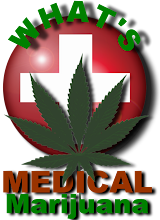American Academy of Pediatrics Calls For Rescheduling Cannabis
The new position statement resolves: "The AAP strongly supports research and development of pharmaceutical cannabinoids and supports a review of policies promoting research on the medical use of these compounds. The AAP recommends changing marijuana from a Drug Enforcement Administration Schedule I (controlled substance) to a Schedule II drug to facilitate this (clinical) research."
By definition, Schedule I controlled substances are defined as possessing no "accepted medical use." Clinical protocols involving cannabis are strictly controlled and require authorization from various federal agencies, including DEA, FDA, and the National Institute on Drug Abuse (NIDA) - the latter of which is designated under federal law as the sole provider of cannabis and/or organic cannabinoids for research purposes.
"A Schedule I listing means there's no medical use or helpful indications, but we know that's not true because there has been limited evidence showing [marijuana] may be helpful for certain conditions in adults," said Dr. Seth Ammerman, who co-authored the amended policy statement.
The updated AAP resolution also acknowledges that certain types of cannabinoid-therapy may provide benefits to adolescents, particularly those with treatment-resistant forms of epilepsy and chronic seizures. It states, "The AAP recognizes that marijuana may currently be an option for cannabinoid administration for children with life-limiting or severely debilitating conditions and for whom current therapies are inadequate."
Last year the Epilepsy Foundation of America issued a similar resolution, citing preclinical data and observational reports of the potential therapeutic benefit of the cannabinoid cannabidiol (CBD) in pediatric patients and calling for "an end to Drug Enforcement Administration (DEA) restrictions that limit clinical trials and research into medical marijuana for epilepsy."
Separate language in the AAP's position statement also addresses the social use of the plant, affirming, "AAP strongly supports the decriminalization of marijuana use for both minors and young adults and encourages pediatricians to advocate for laws that prevent harsh criminal penalties for possession or use of marijuana." By contrast, the statement acknowledges the group's continued opposition to the legalization of marijuana, a policy change that it alleges poses "potential harm to children."
For more information, please contact Paul Armentano, NORML Deputy Director, at: paul@norml.org. Full text of the Academy's policy statement is available online at: http://pediatrics.aappublications.org/content/early/2015/01/20/peds.2014-4146.full.pdf+html.


No comments:
Post a Comment